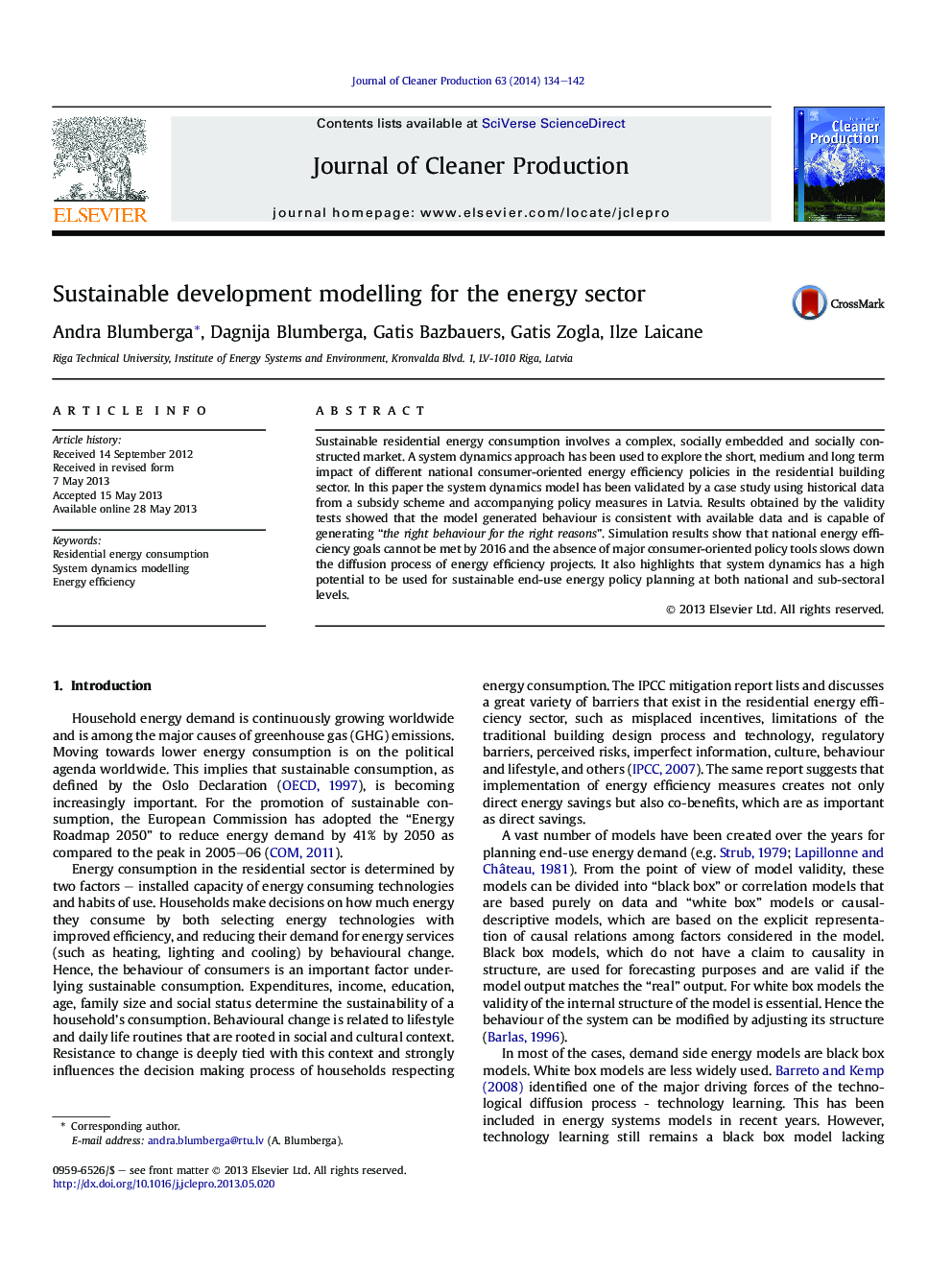| Article ID | Journal | Published Year | Pages | File Type |
|---|---|---|---|---|
| 1745106 | Journal of Cleaner Production | 2014 | 9 Pages |
Sustainable residential energy consumption involves a complex, socially embedded and socially constructed market. A system dynamics approach has been used to explore the short, medium and long term impact of different national consumer-oriented energy efficiency policies in the residential building sector. In this paper the system dynamics model has been validated by a case study using historical data from a subsidy scheme and accompanying policy measures in Latvia. Results obtained by the validity tests showed that the model generated behaviour is consistent with available data and is capable of generating “the right behaviour for the right reasons”. Simulation results show that national energy efficiency goals cannot be met by 2016 and the absence of major consumer-oriented policy tools slows down the diffusion process of energy efficiency projects. It also highlights that system dynamics has a high potential to be used for sustainable end-use energy policy planning at both national and sub-sectoral levels.
